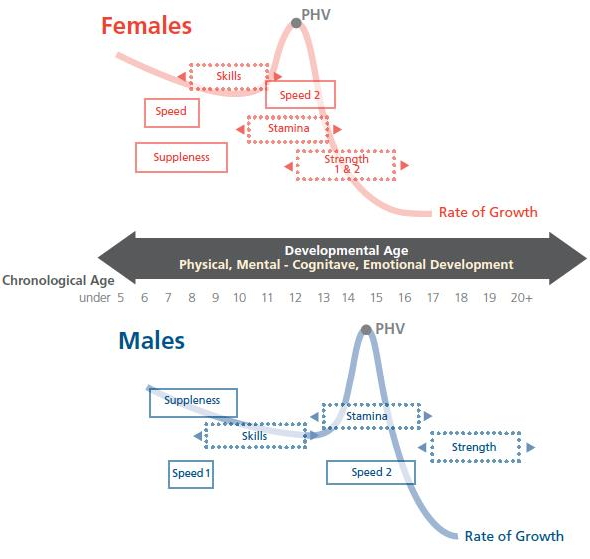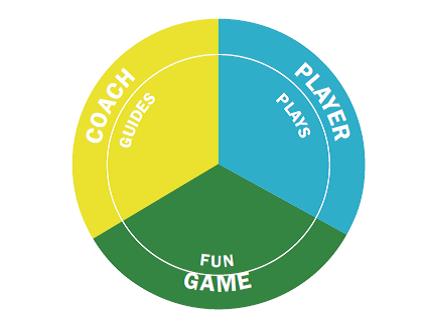Fundamental Stage
The main objective of this phase is to learn the fundamental movement skills and build overall movement skills (Canada Sport Institute, 2014).
The chronological age range for this stage is males 6-9 years old and for females 6-8 years old. According to Balyi and Hamilton (2004), fundamental movement skills should be practiced and mastered before sport specific skills are introduced. The development of these skills, using a positive and fun approach, should contribute significantly to future athletic abilities. Participation in a wide range of sports is also encouraged. This is an opportunity to develop a wide range of motor skills rather than just motor skills specific to a certain sport or position. This should produce well rounded players who have a better trainability for long term, sport-specific development (Balyi and Hamilton, 2004).
Fundamental movement skills include locomotion (walking, running, jumping etc.), stabilisation (landing, rotation, balance etc.) and manipulation (throwing, striking etc.) skills (Balyi and Hamilton, 2004).
The LTAD model also noted windows of opportunity for training certain physical capacities. These windows of opportunity and the ages they are associated with are shown in the diagram below (Canada Sport Institute, 2014).

The windows with solid lines are based on chronological age, and the windows with dotted lines are based on biological or developmental age which is variable as discussed earlier. It shows that within the FUNdamental stage is a key development window for speed and suppleness. This could give physical development training some focus and structure however, it is important to note that other physical capacities can and should still be worked on in this stage. It is key that even though training should be structured, it should always be fun for the child. Making the training too formal or strict could limit the development or even cause loss of interest and dropout from the child.
As we are looking at rugby specifically the fundamental movement skills must be integrated in a way that introduces the technical and tactical skills of rugby. The diagram below is a simple representation of the roles during training for rugby in this stage (IRFU, 2006).

From a physical development standpoint, the coach could be incorporating exercises into play and making sure that the games are designed in such a way to develop physical capacities as well as technical skills. Some key physical capacities for rugby that the coach could begin to develop in this stage are agility, awareness of body in space, balance (static and dynamic), coordination and speed (IRFU, 2006). A video example of a game that is teaching rugby based technical skill and also agility and acceleration is presented below as an example of what could be included in training sessions during the FUNdamentals stage.